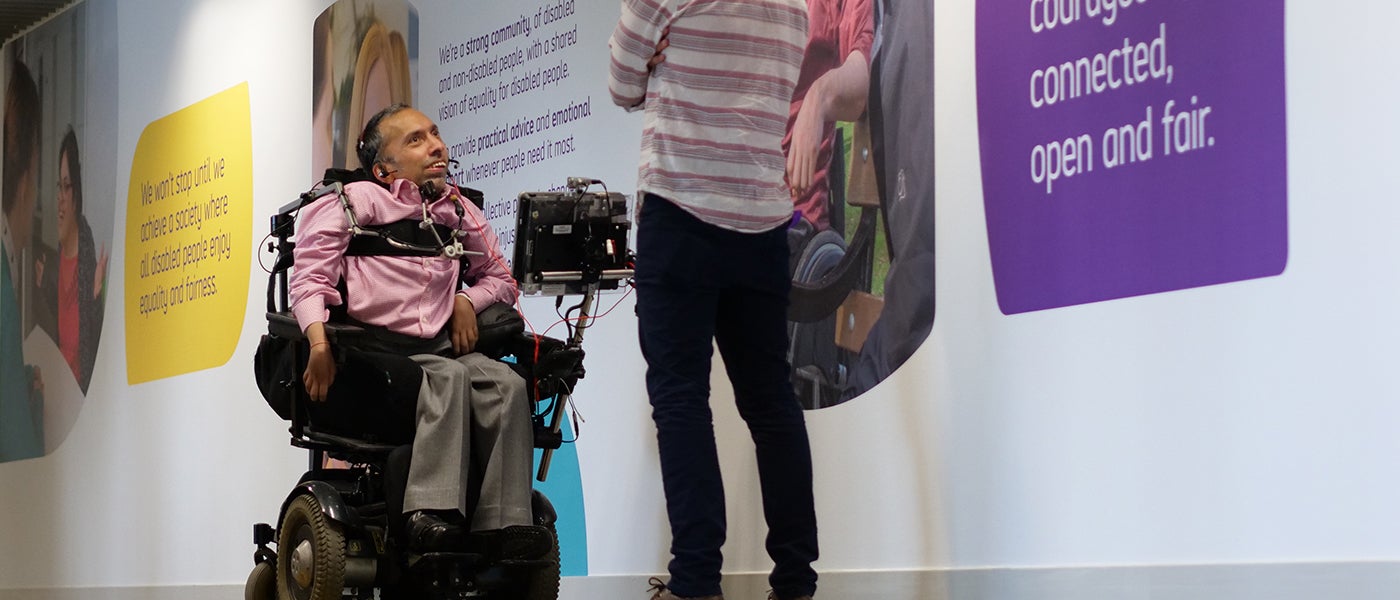- Home
- News and stories
- Publishing data about disabled employees is crucial to tackling inequality at work
Publishing data about disabled employees is crucial to tackling inequality at work
 30 April 2019
30 April 2019
At Scope we know that what gets measured gets done. Which is why for the past three years Scope has campaigned for Government to introduce measures that would encourage employers to report on disability in the workplace.
We frequently hear from disabled people about the difficulties they face – from negative attitudes and inaccessible recruitment processes, to inflexible workplaces and difficulties getting adjustments.
And we know that one way for employers to tackle this is through collecting data on disability to inform what action they need to take to recruit and retain disabled people.
Our Disability and Wellbeing report
Last November, the Government heard our call for greater transparency and introduced the Disability, Mental Health and Wellbeing Reporting Framework, a tool to support employers to voluntarily report on their workforce.
Today, Scope has become one of the first employers to publish its own Disability and Wellbeing Report alongside a range of actions we will be taking as an employer to create the best possible workplace for our current and future disabled staff.
Our report found:
- 17 per cent of Scope’s staff identify as disabled
- 74 per cent of disabled staff have shared information about their impairment or condition at work, with 89 per cent of those having shared information with their line manager
- 86 per cent of staff are confident supporting and including disabled colleagues
- 92 per cent of staff enjoy the work they do
We know we have more work to do. By being open about our own performance and encouraging other employers to follow, together we can make sure disabled people have equality in the workplace.
Our report provides an overview of the experiences of our disabled staff, the wellbeing of our employees and where we aspire to be in future.
Supporting prospective and current disabled staff
We believe we have a good foundation to build from in the coming years, and we are committed to reaching as wide a talent pool as possible to best serve the disabled communities we work and campaign with.
We’re proud of our workforce and are focused on creating an open and supportive culture that supports all our staff, but particularly our staff who identify as disabled. In the past 12 months we have:
- Rolled out a new reasonable adjustments policy and process, making it easier for staff to discuss and secure support they might need
- Provided disability equality training for all our employees and extra training for managers
- Introduced a new set of values for all our staff focussing on fairness, diversity, openness and accessibility.
You can read about more ways we support our prospective and current disabled staff on our website.
Next steps
Of course, we know we have more to do. Our report sets out a range of actions we are undertaking over the next 12 months including updating our disability equality training, continuing to improve our reasonable adjustments process and publishing an annual update to this report. We’ll also be delving much deeper into the experiences of disabled colleagues and working with them to act on this.
Closing the disability employment gap – the difference between the rate of employment of disabled people and non-disabled people - needs action from employers as well as the Government, which is why we will shortly be publishing guidance for employers on how to collect and report on disability in the workplace.
We know that many employers already collect some data on disability in the workplace. By taking the next step and publishing this data, employers can send a powerful message that disabled people are welcome in their workplaces, and that they are taking disability equality seriously.
 30 April 2019
30 April 2019





